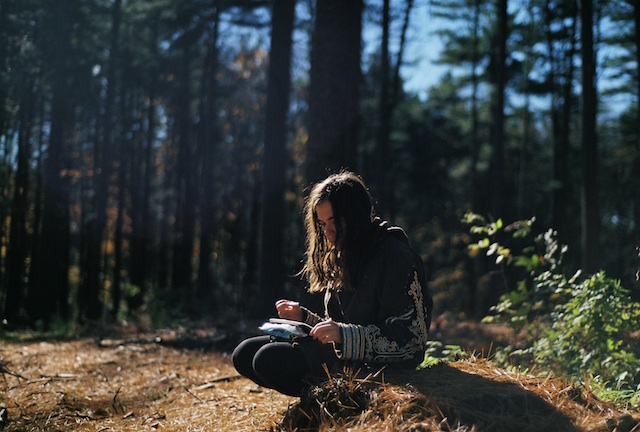
When I was 26, I was stuck.
A few years earlier, I’d moved to Maine after a wild, cross-country road trip with my best friend. I’d fallen in love at first sight with the city of Portland—with its brick buildings and cobblestone streets, its perch on the slate-blue Atlantic Ocean, its huddle of artists and writers. I fell so hard and quick that I got a job at a coffee shop and dropped anchor, leaving my friends and family 4,000 miles away in Alaska.
But when my younger brother died unexpectedly, I needed to be closer to my family.
Just as abruptly as I’d arrived, I left Maine.
As I slowly healed from my brother’s death, a longing arose—to return to my interrupted life in Maine. But how could I leave my parents behind again? I was their only child now. How could I choose between a niggling urge to return to Maine, and my loyalty to the people who’d loved me the most, who’d done so much for me, who’d lost so much?
And yet, I had to choose.
My mind swirled for days, weeks, months. Maine or Alaska? Near or far? Family or desire?
During this time, I stumbled upon a writing exercise by writer and creativity guru, Julia Cameron. In her book, The Right to Write, she gives readers an assignment to write a letter to ourselves, from an older, wiser version of ourselves.
With a cup of warm, sweet coffee, and my notebook and pen, I sat down and started writing. With the question of where to live hovering within me, I tried to sink down into some future version of myself, one who’d lived a wider, wizened life, one who had the gift of perspective.
As it turned out, she had a pretty strong opinion on the matter:
I know that deciding whether or not to go back to Maine is a tough decision. What I want you to know is that you need to go to Maine to find out if that’s where you’re supposed to be. Your parents will be okay. You’ll be okay. But you need to know. Life is too short to spend the rest of yours—ours!—wondering if you’ve made the right decision. Go. Find out. If it doesn’t feel right, you can come back. But you have to find out.
Suddenly, the decision that I’d been torturing myself with was clear. I didn’t have to make the decision to stay out west or return to Maine right then—but I did need to make the decision to at least go find out what it felt like to be back in Maine.
There was something about dropping into this more seasoned version of myself that helped me rise up out of the weeds I’d been in. Until that moment, I hadn’t been able to get out of my own way. Tuning into this wiser me gave me a longer viewpoint to consider.
And once she’d spoken, I could no longer ignore what I recognized as the truth.
“I need to find out about Maine,” I told my parents. “If it doesn’t feel right, I’ll come back.”
Within a few weeks of being back in Portland, it was clear that I was home. I’d met the person I’d later marry and have a family with. I’d found a job, and a house. I hadn’t just romanticized Maine, the place I’d lived when something awful had happened—it was where I wanted to be.
Where I was supposed to be.
When we’re trying to make a tough decision, and feeling lonely or stuck or lost, it can be clarifying to drop into that older, wiser version of ourselves. We can sit down with a pen and paper, or a computer, and get really still. We can ask for the wisdom of a long-lived life, one where we’ve already made most of the major decisions. It sounds a little mystical, a little new -agey. But you might be surprised by what that older version of yourself has to say.
She just might change your life.
~
Author: Lynn Shattuck

No comments:
Post a Comment